This website uses cookies so that we can provide you with the best user experience possible. Cookie information is stored in your browser and performs functions such as recognising you when you return to our website and helping our team to understand which sections of the website you find most interesting and useful.
Spain to be the frontrunner in organic fine wines, says MW
Almudena Alberca MW, the technical director of Spanish wine group Entrecanales Domecq e Hijos, tells db why Spain is light years ahead of other winemaking nations when it comes to organic fine wines.
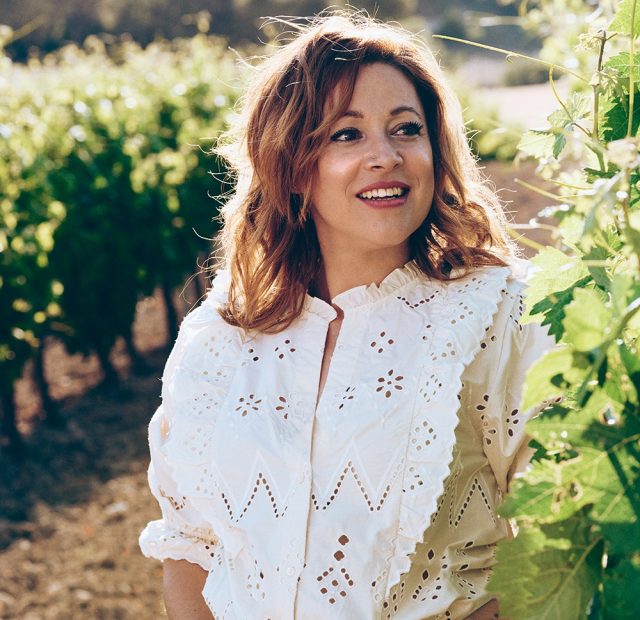
With more than 400 hectares of vineyards across Spain, including in Rioja, Ribera del Duero, Rueda and Valdeorras, Entrecanales Domecq e Hijos is well-placed to offer a comprehensive overview of the Spanish wine scene in 2023.
According to the wine group’s technical director, Almudena Alberca MW, the country is leading the pack in one particular area, that of organic fine wines.
“We will definitely see more organic fine wines coming from Spain in the near future,” Alberca tells the drinks business.
“Spain already has more hectares of organic vineyard than any other in the world – with 131,000 ha of certified organic vines in 2020 – as many Spanish areas have climates that lend themselves to this way of working. We often have low disease pressure due to scarce rainfall and naturally low yields.”
“In terms of fine wine, most professional – and by that I mean respectful – growers and producers already know that you have to look after the vineyard to make great wines, and that ensuring the natural balance of the plant and the soil is a big part of that,” she adds.
When asked which region in Spain is most feeling the impact of climate change, Alberca admits that “of all the regions I work with, the driest and hottest in the extreme year of 2022 were Valdeorras and Ribera del Duero.”
“Ribera del Duero has been particularly impacted as it already had a very extreme climate and so now the peaks are becoming even more extreme. It wasn’t unusual to have several days with temperatures of 40ºC or more over the summer, but what was different last year was that these hot periods extended over weeks and there were barely any days at all when the heat was at a tolerable level.”
There is an argument to be made that in order to preserve the future of fine wines from Ribera, more producers should be looking at going organic.
“It is hard to find information on the exact number of organic vineyards presently in the Ribera as registration is by province. But as a guideline, in Burgos, one of the three provinces in the Ribera del Duero wine region, the number of organic vineyards rose by 360% between 2018 and 2022,” Alberca says.
Bodegas Viña Mayor in Ribera is one of three wineries belonging to Entrecanales Domecq e Hijos that specialises in the production and ageing of high quality wines.
All wineries belonging to the group are demonstrably committed to sustainability, and were pioneers in Spain in gaining Carbon Neutral certification and using 100% renewable energy.
In the case of Viña Mayor, the winery has 10 hectares of vineyards that have been certified as organic since 2012.
“Another 12 hectares have just converted, obtaining their organic certification in 2022, in addition to sizeable organic vineyard holdings in Toro and Rueda,” says Alberca.
The Certification Game
“Of course, if you aren’t certified then there is no guarantee to the customer that you are doing the things you say you are, so the next step is to obtain organic certification to prove your sustainability commitments to customers,” adds Alberca, who is Spain’s first and only female Master of Wine.
“It takes time and investment. In our case, our aim is for all our wines released from our Rueda estate to be certified organic by 2025.”
The Rueda estate of which she speaks is Caserío de Dueñas, a 400-year-old wine property in one of the most well-regarded areas of the D.O Rueda. Regenerative viticulture is at the heart of the winery’s approach, with a strong focus on biodiversity, and encouraging birds to nest and insects to proliferate.
In a bid to maintain the estate’s potential for producing fine wines, “we’ve moved to lower planting densities to reduce the need for water, improved our pruning to make the vine more resilient and changed to drought-resistant rootstocks,” Alberca says.
“There are sustainability projects taking place in all our wineries but one of the most exciting is happening right now in our Rueda estate,” reveals Alberca, who joined the company in 2015 and became a member of the Board of Directors in 2022.
“Together with the Agrarian Technological Institute of Castilla y Leon, known as ITACyL in Spain, we are undertaking a project to recover more than 16 ancient grape varieties,” she explains. “Many of these have a longer growing cycle and tolerate higher temperatures, so could be of great benefit in a warmer world.”
The winery started grafting these varieties back in 2021, “so this year we should be able to start undertaking winemaking trials with some of them such as Cenicienta, a light-bodied red that the DO Rueda is already in the process of authorising,” Alberca says.
Cenicienta is one of a treasure trove of old grape varieties in Spain that winemakers are looking to reinstate.
“It’s hard to predict what will happen in coming years,” says Alberca, who as well as being a Master of Wine is also an Agricultural Engineer. “There are rarely any cold vintages any more, and there is a great deal of variation between vintages. 2010 and 2021 were relatively cool, and 2022 was extremely hot. The 2017 vintage was unusually short.”
However, Spain’s willingness to embrace the organic route ahead of many other nations may prove fortuitous in the decades to come and secure the future of its fine wines.
Discover the Entrecanales Domecq e Hijos portfolio
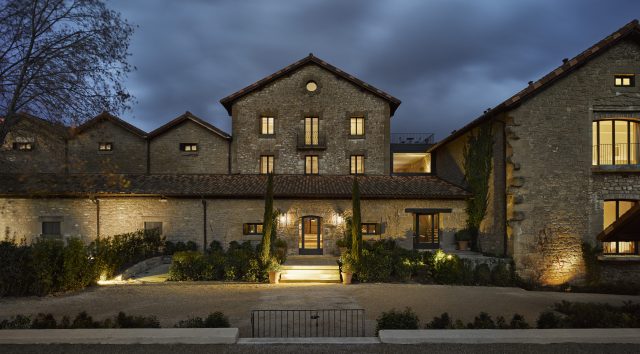
Bodegas Cosme Palacio
Bodegas Cosme Palacio was founded in Laguardia in Rioja Alavesa in 1894. One of the pioneers of modern Rioja, it was the first winery in Rioja Alavesa to open its own dedicated wine tourism facilities in 1991, with a hotel that has now been converted into La Casa Cosme Palacio. After almost seven years of complete reforms and a redefinition of its philosophy, this 125-year old building has become Spain’s first “by invitation only” luxury winery guest house.
Key wine brands:
Glorioso
Cosme Palacio
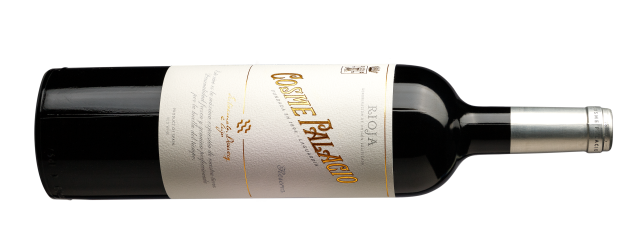
Bodegas Viña Mayor
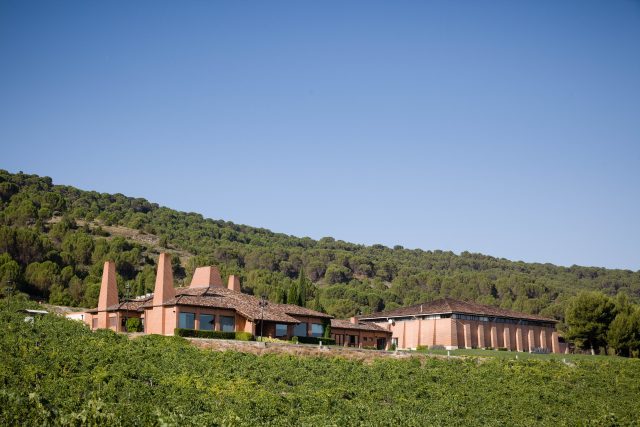
Located in the ‘Golden mile’ of Ribera del Duero, Viña Mayor was one of the first wineries to form part of the Ribera D.O. in 1986. Since 2015, all energy used in Viña Mayor has been 100% renewable. The vineyard is certified organic and managed using principles of biodynamic agriculture. Bodegas Viña Mayor was also one of the first wineries to become Carbon Neutral, thanks to the continuous reduction and off-setting of emissions. Plans put in place to increase energy efficiency, reduce water use and manage the generation of waste, led to Viña Mayor becoming the first winery in the DO Ribera del Duero to achieve Wineries for Climate Protection certification.
Key wine brands:
Viña Mayor
Secreto
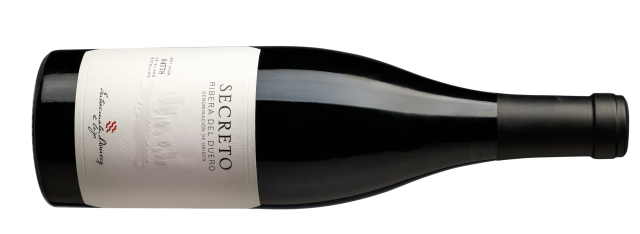
Caserío de Dueñas
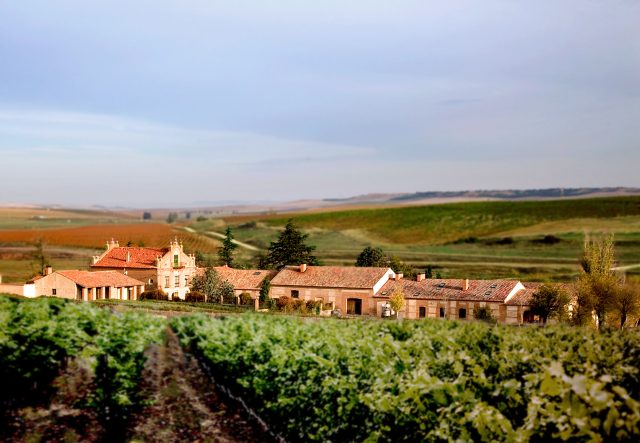
A magical and historic place, Caserío de Dueñas estate has four centuries of history and 300 hectares of vineyards that were planted more than 20 years ago in one of the most iconic areas of the D.O. Rueda. Here, regenerative viticulture is practiced that respects environmental sustainability and enhances biodiversity, focusing on recovering native varieties and encouraging birds to nest there and insects to proliferate, aerating and enriching the land.
Key wine brand:
Caserío de Dueñas


